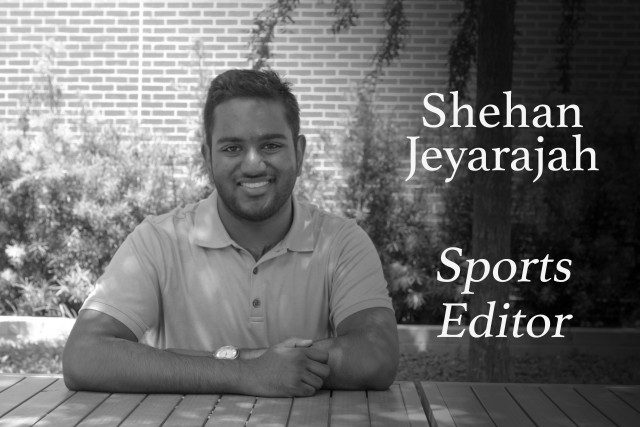I was struck when I heard the news of three students being murdered in Chapel Hill, N.C. I read the initial police report and saw the Craig Stephen Hicks’ testimony about how the killing came after an ongoing parking dispute.
Triple murders don’t just happen over parking disputes.
We don’t know at this juncture whether or not the murders were a hate crime. But there’s a reason everyone surrounding the victims seems to believe it was, and it points to a much bigger issue.
Being Muslim in America is dangerous. It doesn’t get the attention that other historically discriminated-against groups receive, but it has the same effect on how Muslims live every day of their lives.
Historically, Muslims are not a particularly recognized group in mainstream American culture. There are plenty of factors going in, not the least of which is the relatively small population. Only 0.6 percent of the American population is Muslim, which adds up to only around 2 million.
A study by the Arab American Institute found that 45 percent of Americans have an unfavorable opinion of Muslims, compared to only 27 percent having a favorable. Despite that, a Pew Research poll claims that only 38 percent of Americans actually know a Muslim. With so few Americans actually knowing a Muslim, stereotypes and mass media take their toll.
The average American tends to only see Islam portrayed on the news in one place: violence in the Middle East. For many, terrorist cells like al-Qaida were the first time they saw Islam attached to a name. Things have gotten even worse thanks to the war effort and the rise of the Islamic State. If you don’t know a Muslim, how can you be expected to understand that this is not Islam?
Misunderstanding of Muslims has reached such a great level, it’s even starting to affect other groups. In 2012, six Sikhs were killed in a Wisconsin temple by a gunman who saw turban-clad men and assumed they were Muslims. Others who aren’t even of the Islamic faith, including myself, have been subjugated to jeers like “terrorist.”
It’s often thought that since Muslims have found economic success in America, they do not struggle. However, it’s time to sit down and have a national conversation about all types of Muslims in America. What happened in Chapel Hill last week is a tragedy, but we can use it as a stepping stone.
We can use it to remember the giving spirit of second-year dental student Deah Barakat, who was raising money to go on a mission trip to Turkey and give dental services to refugee children from his native Syria.
We can use it to remember the pride of recent college graduate Yusor Abu-Salha, who said, “It’s beautiful to see people of different areas interacting … being one community,” on National Public Radio’s StoryCorps.
We can use it to remember Razan Abu-Salha, our peer as a college sophomore whose story was yet to be written.
Whether or not this cruel murder was a hate crime, we can use the tragedy as an opportunity to display the best of our Muslim brothers and sisters rather than letting the atrocities of a few be the only glimpse we get at over a billion humans.
We are a nation formed on the basis of accepting individuals from all different backgrounds ,and it all started with the freedom of religion.
If we let misrepresentation of the few define the actions of the many, how are we any better than the terrorists?
Shehan Jeyarajah is a junior journalism major from Coppell. He is the sports editor and a regular columnist for the Lariat. Follow him on Twitter @ShehanJeyarajah.


